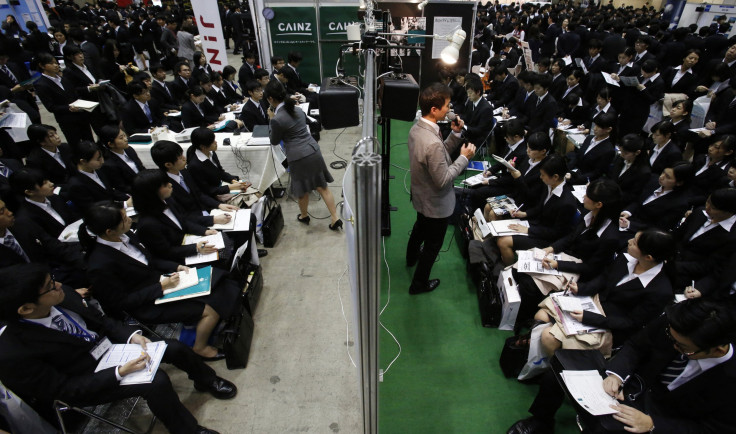Japan literally working itself to death as work stress-related suicides hit all time high

‘Death by overwork’ or karoshi is a problem that first came to prominence in the 1980s, after the OPEC oil crisis spurred the first major postwar restructuring of Japanese industry and employment ties. Since then, each year has seen increasing numbers of Japanese workers fall prey to heart attacks, stroke or suicides due to a lack of work-life balance.
But claims for compensation for karoshi hit an all-time high over the last year, with 1,456 cases recorded, according to Japan’s Labour Ministry data. Most cases involved workers from the health care, social services, construction and shipping industries – all of which currently face dire labour shortages.
Hiroshi Kawahito, secretary-general of the National Defense Counsel for Victims of Karoshi, told Japan Today he was confident that the real number of karoshi deaths is likely 10 times higher than the amount officially recorded. But Kawahito also thinks the government, reluctant to recognise the plenitude of other cases out there, isn’t acting to its fullest potential to reduce this soaring figure.
Karoshi was only a threat to middle-aged “salarymen” office workers back in the 1980s, but it seems the health issue is now becoming more prevalent amongst women too. Labour ministry data shows that work-related suicides among women have increased by 39 percent since 1990.
Kawahito, a practicing lawyer who has been handling karoshi cases for almost three decades, also noted that while previously only five percent of his cases were women, they now make up 20 percent.
These statistics point to the leniency of Japan’s labour laws, which imposes no legal limits on working hours.
Japan’s Labour Ministry officially recognises two kinds of karoshi: death from cardiovascular disease linked to overwork, and suicide caused by work-related mental stress.
According to The Japan Times, a suicide can be labelled karoshi if leading up to their death, a worker works 160 or more hours of overtime in a month, or 100 hours of overtime for three consecutive months. A cardiovascular death, on the other hand, is considered karoshi if an employee works 100 hours overtime in the month leading up to the death, or 80 hours overtime over two or more months in the six months leading up to the death.
The publication also noted that Japan’s workforce can be categorised into two segments: regular employees, and those on non-standard temporary contracts, which are typically made up of women and younger people. Last year, 38 percent of the total workforce was made up of non-regular employees, up from only 20 percent in 1990. Sixty-eight percent of these non-regular employees are women.
Head of the Families Dealing with Karoshi support group, Emiko Teranishi, who lost her husband to karoshi after excessive hours at work, admitted to hearing many complaints about companies’ hiring strategies. These include companies telling new employees that their salary includes 80 hours of overtime work, and that staff who clock in less hours than required must reimburse the company.
Despite these conditions, young applicants usually accept the offer because they believe it will be too difficult to get a job elsewhere. In many instances, employees subject to such a system don’t even make the minimum wage.
Hirokazu Ouchi, a professor at Chukyo University, penned a book last year about companies who ‘abuse’ their employees after discovering that many of his students were severely underpaid at their part-time jobs. Ouchi recognised a pattern running through the hiring practices of these companies, which have been dubbed “black” companies by the media.
“Companies will hire someone for two to three years, but they have no intention of investing the time or the month to nurture that employee,” he explained to Japan Times.
“There is a way for companies to keep labour costs down, but it is also a path that leads to death by overwork.”
And while a shrinking supply of workers -- as evidenced by Japan's dwindling working age population -- would typically motivate companies to improve their working conditions to attract workers, Ouchi said this was not the case for Japanese firms, especially since the Labour Ministry lacks the manpower to deal with complaints.





















